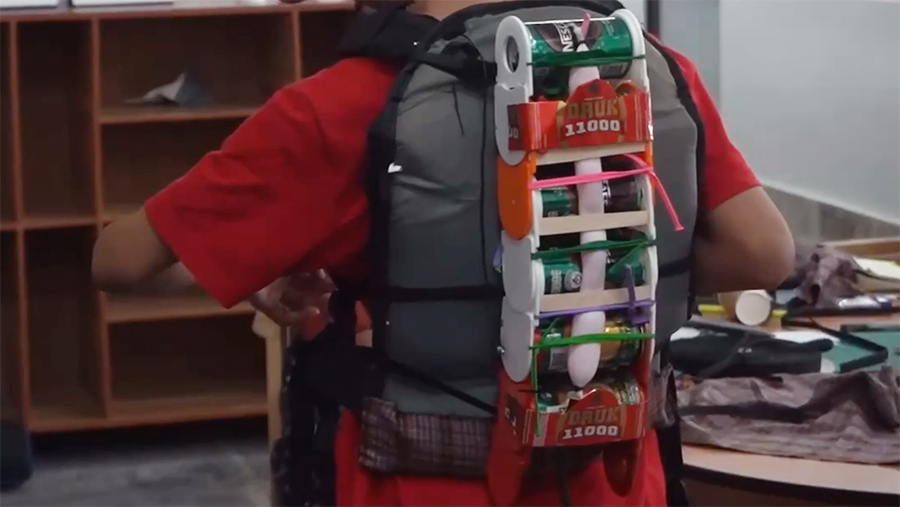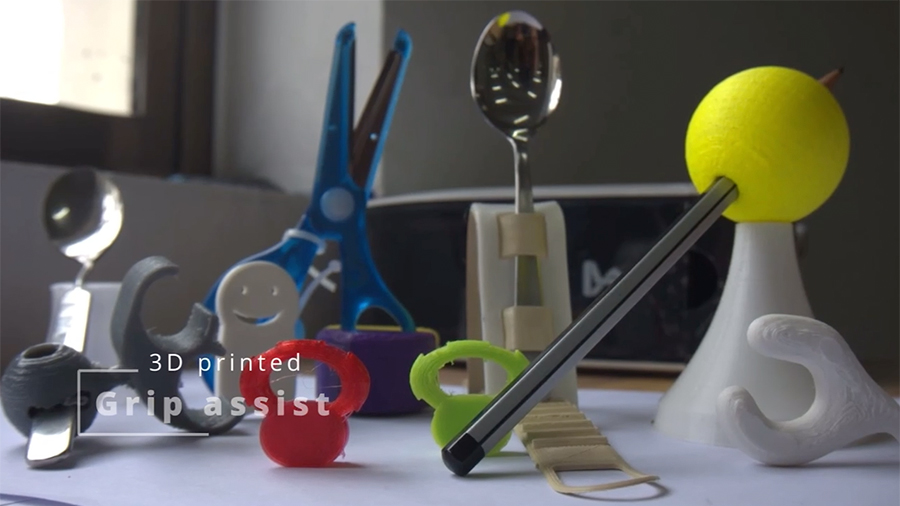
Ever imagined that beer cans can be used to help individuals with disabilities? This is possible. For the Bhutan Fab Challenge, the fab lab network at the College of Science and Technology has developed a prototype that will assist children with disabilities using aluminium cans and locally available materials. The prototype is also one of the winners of the Bhutan Fab Challenge.
Karma Kelzang Eudon, a lecturer from the College of Science and Technology is a member of the team that developed assistive technologies for persons with disabilities using aluminium cans and other locally available materials.
The team’s prototype which included a Braille printer for the visually impaired persons won the people’s choice award at the challenge.
“We focus basically on the assistive technology and we also wanted to focus on the waste management by upcycling aluminium waste from beer cans. We wanted to contribute to the special needs children with assistive devices and simple teaching aids which were designed in our fab lab.”
 The team has also developed other assistive technologies for children with joint and muscle problems and 3D-printed assistive devices for children with Special Education Needs among others.
The team has also developed other assistive technologies for children with joint and muscle problems and 3D-printed assistive devices for children with Special Education Needs among others.
Similarly, a team that has developed a prototype to ease weaving practice and encourage youths to take up weaving won the expert choice award.
“So, we looked into three different areas, one was looking at traditional weavers. We find ways to help those with problems, such as their back problems by creating a back strap loom. This way the tension is transferred from their back to the seat. Finally, for the new generation, we want to pique their interest in weaving by making a kit called the Gawa Kit which is all about making friendship bracelets so, you are introducing weaving along with the addition of electronics,” said Shannon Sykes, the winner of Expert Choice Award.
The two winning teams were awarded prize money of USD 5000 or Nu 400,000 each which will be used to fund the implementation of their projects.
The winners were selected based on their prototypes’ scope for economic opportunity, technology and innovation, sustainability and community and youth and education.
The two prototypes were also among the five challenge ideas of the Fab Bhutan Challenge that economists said would yield high returns to the country’s economy if implemented.
The Fab Bhutan Challenge, under the theme of ‘designing resilient futures’ demonstrates the potential of technology’s positive impact on Bhutan’s society by addressing critical issues in a sustainable and effective manner.
Fab City Foundation and the country’s network of five FabLabs organised the Fab Challenge. Close to 60 participants from 22 countries took part in the six-day challenge.
Tshering Deki
Edited by Phub Gyem









